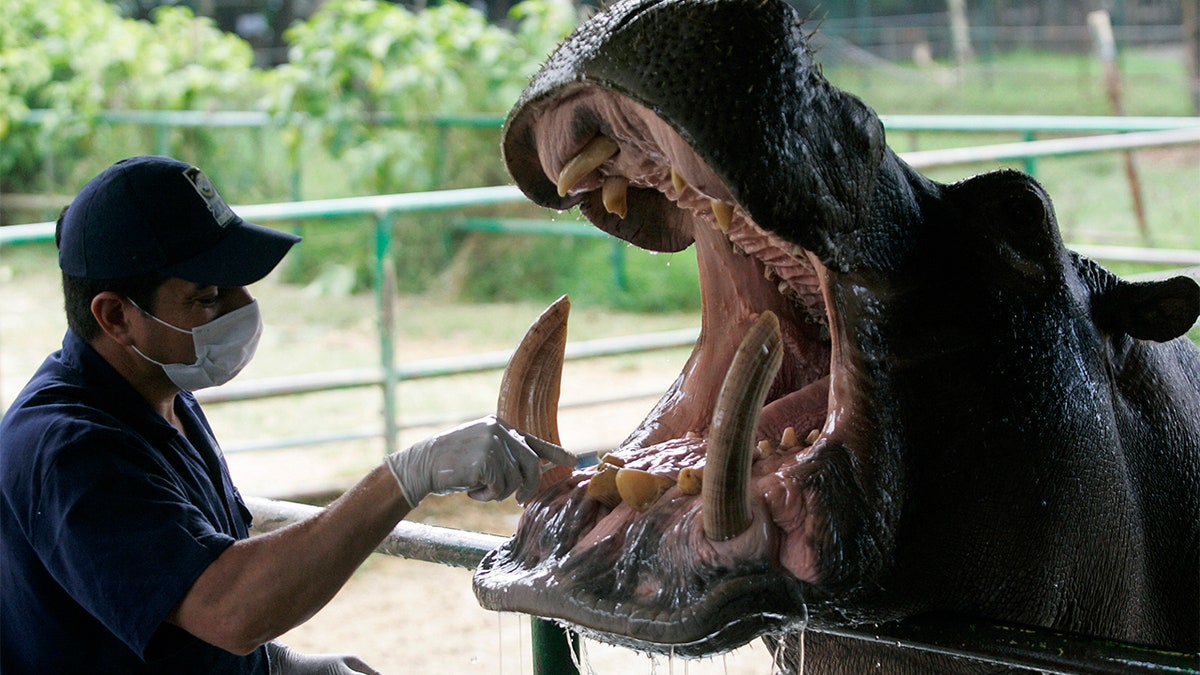Fox News Flash top headlines for Feb. 1
Fox News Flash top headlines for Feb. 1 are here. Check out what's clicking on Foxnews.com.
Large wild hippos once owned by infamous drug lord Pablo Escobar have become an invasive species whose waste is wreaking havoc on Colombia’s aquatic ecosystem.
That’s the conclusion of a new study published this week in the journal Ecology, according to the tech publication C/Net.
According to researchers from the University of California, San Diego and the Universidad Pedagógica y Tecnológica de Colombia, who conducted the study, Escobar’s four hippos have since multiplied to 80 hippos, C/Net reported. Hippos can grow to 3,000 pounds each.
The researchers determined that the large amounts of waste these creatures are excreting into the lakes they inhabit are changing the water's chemistry and oxygen levels, according to the news outlet.
PABLO ESCOBAR'S LAST GIFT TO COLOMBIA: OUT OF CONTROL HIPPOS THAT MAY HAVE TO BE PUT DOWN

A veterinarian prepares a hippopotamus, known as "Orion," for dental treatment at the Zoo Santa Fe in Medellin January 27, 2010. The hippo was born in the private Hacienda Napoles ranch which belonged to Pablo Escobar. (REUTERS/Albeiro Lopera)
The study found that the hippo waste fertilizes harmful algae and bacteria, causing problematic algae blooms similar to red tides, which cause illness in humans and animals, C/Net reported.
PABLO ESCOBAR'S HUNGRY, HUNGRY HIPPOS HAVE LEFT COLOMBIAN TOWN IN STATE OF FEAR
Escobar's sprawling drug lair contained an exotic zoo for his children's enjoyment, according to reports.
Columbian police killed Escobar in 1993 and afterward, the government found homes for all the zoo’s exotic inhabitants -- except the hippos.
The authors of the study published in Ecology said hippos are difficult to catch and dangerous to confront.
They warned that the hippo population is likely to grow, further changing the aquatic ecosystem, C/Net reported.
CLICK HERE TO GET THE FOX NEWS APP
"If you plot out their population growth, we show that it tends to go exponentially skyward," said UC San Diego's Jonathan Shurin, a biological sciences professor and the study’s lead author. "In the next couple of decades there could be thousands of them. This study suggests that there is some urgency to deciding what to do about them. The question is: What should that be?"





















